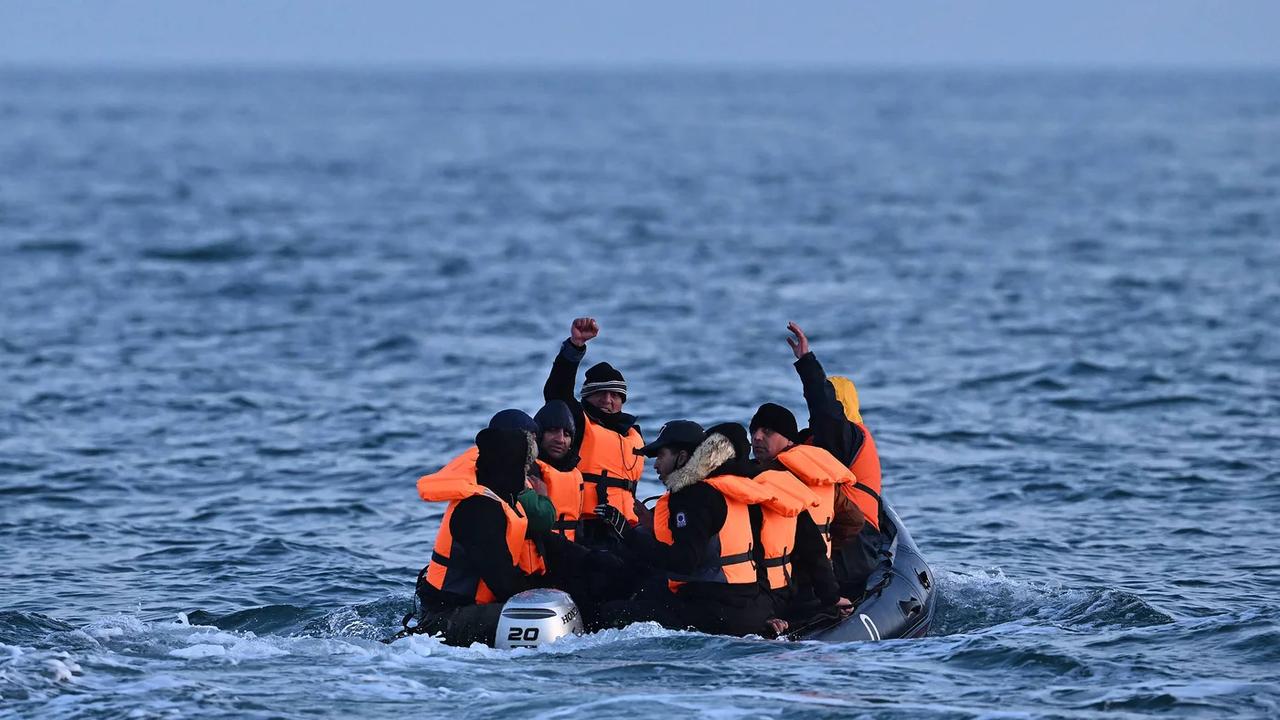
In a statement that stirred political and media circles, Italian Prime Minister Giorgia Meloni claimed last week that irregular migration from Türkiye to Italy has dropped to zero. The far-right leader made the comment during her meeting with President Recep Tayyip Erdogan in Rome, thanking Türkiye for its cooperation in reducing migration flows.
Meloni’s assertion aligns with recent data released by the U.N. Refugee Agency (UNHCR), suggesting a significant decline in irregular migration from Türkiye to Europe through the Eastern Mediterranean route.
According to UNHCR statistics shared on April 27 and reported by Oksijen's Metin Kaan Kurtulus, only 10,822 migrants have arrived in Greece from Türkiye in the first four months of 2025 — a sharp drop compared to 2024. Of these, 9,669 arrived by sea and 1,153 by land.
By comparison, in all of 2024, 54,417 migrants reached Greece via sea and 7,702 via land. If this downward trend continues, 2025 may end with total figures hovering around 30,000 — nearly half of last year's total and a mere fraction of the 900,000 migrants recorded during the 2015 crisis peak.
In 2025, Crete has received the highest number of Türkiye-origin migrants among Greek islands, with 2,704 arrivals, followed by Samos (1,962) and Lesbos (1,336). Meanwhile, Greek Cyprus has reported just 266 sea arrivals from all countries — a steep fall from 3,874 in 2024.
The overall picture for Europe shows a clear decline. Between January 1 and May 4, 2025, 43,049 irregular migrants reached the continent, compared to nearly 200,000 in all of 2024.
Although Meloni declared a halt to migration from Türkiye, UNHCR data shows that 17,388 irregular migrants have reached Italy by sea in 2025. Most of these have landed in Sicily (15,250) — a location historically linked to departures from Tunisia and Libya.
By contrast, Calabria (329) and Apulia (234), which are geographically closer to Greece and Türkiye, saw far fewer arrivals, indirectly supporting Meloni's claim that the Türkiye-origin flow has significantly decreased.
Türkiye’s former ambassador to Athens, Hasan Gogus, noted that most migrants from Türkiye aim for Germany and northern European countries, using Greece only as a transit point.
Experts link the decline to deepened cooperation between Ankara and Frontex, the E.U.’s border control agency. Nilgun Arisan Eralp, Director of the E.U. Studies Center at TEPAV, told Oksijen that Türkiye is now taking "much stricter maritime border security measures" than in previous years.
Eralp also pointed to €1 billion pledge by E.U. Commission President Ursula von der Leyen to support Syrian refugees in Türkiye as a possible incentive for increased cooperation.
Despite fears of a new wave following potential instability in Syria, Eralp noted that such a scenario has not materialized. Of the 2025 arrivals in Greece, only 3.5% (192) were Syrian nationals. In contrast, Afghans made up 45.5% (2,530), and Egyptians 23% (1,279).
President Erdogan recently stated that 200,000 Syrians have returned home since the fall of the Assad regime.
Eralp concluded that many migrants now choose to stay in Türkiye, where they can live and work informally, rather than risk uncertain futures in Europe.